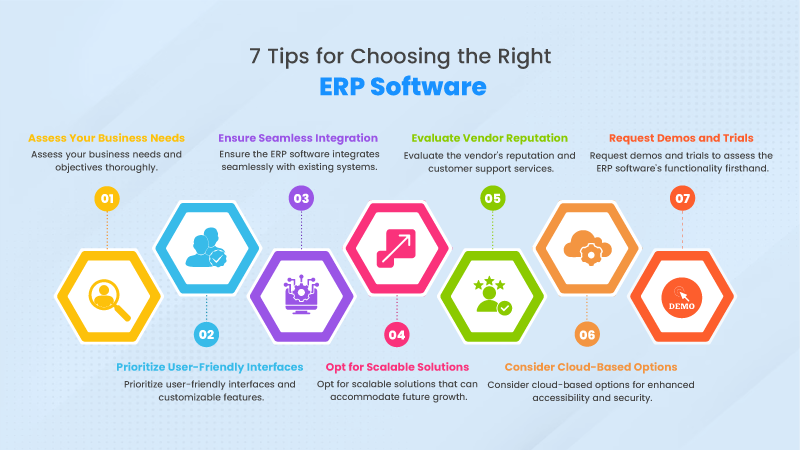Choosing the right Enterprise Resource Planning (ERP) system for your business is a crucial decision. With so many options available in the market, it can be overwhelming to identify the best fit for your organization’s needs. In this article, we will guide you through the process of selecting the right ERP system for your business.
Evaluate Your Business Needs
Before diving into the world of ERP systems, take the time to assess your business needs. Identify the key areas where an ERP system can bring value to your organization, such as finance, inventory management, human resources, and customer relationship management. Determine the specific features and functionalities that are essential for your business operations.
Research Different ERP Systems
Once you have a clear understanding of your business needs, research the different ERP systems available in the market. Consider factors such as scalability, integration capabilities, user-friendliness, and pricing. Look for ERP systems that are designed for your industry to ensure that they meet the specific requirements of your business.
Consider Cloud-Based vs. On-Premise ERP Systems
One of the key decisions you will need to make when choosing an ERP system is whether to opt for a cloud-based or on-premise solution. Cloud-based ERP systems offer flexibility, scalability, and reduced maintenance costs, while on-premise systems provide greater control over data security. Evaluate the pros and cons of each option based on your business requirements.
Assess Vendor Reputation
When choosing an ERP system, it is essential to assess the reputation of the vendor. Look for vendors with a proven track record of delivering reliable and innovative solutions. Read customer reviews, ask for references, and evaluate the vendor’s level of customer support. Choose a vendor that aligns with your business values and goals.
Take Advantage of Demo and Trial Periods
Before making a final decision, take advantage of demo and trial periods offered by ERP vendors. Test the system’s functionalities, user interface, and performance to ensure that it meets your business requirements. Involve key stakeholders in the evaluation process to gather feedback and insights.
Consider Customization Options
Every business is unique, and it is important to choose an ERP system that can be customized to fit your specific needs. Evaluate the level of customization options offered by different ERP vendors to ensure that the system can adapt to your business processes and workflows.
Plan for Implementation and Training
Implementing an ERP system requires careful planning and execution. Develop a detailed implementation plan that outlines key milestones, timelines, and responsibilities. Ensure that adequate training is provided to employees to familiarize them with the new system and maximize its benefits.
Conclusion
Choosing the right ERP system is a critical decision that can impact the efficiency and productivity of your business. By evaluating your business needs, researching different ERP systems, assessing vendor reputation, and considering customization options, you can select an ERP system that aligns with your organization’s goals and objectives. With proper planning and implementation, an ERP system can streamline your business operations and drive growth and success.

